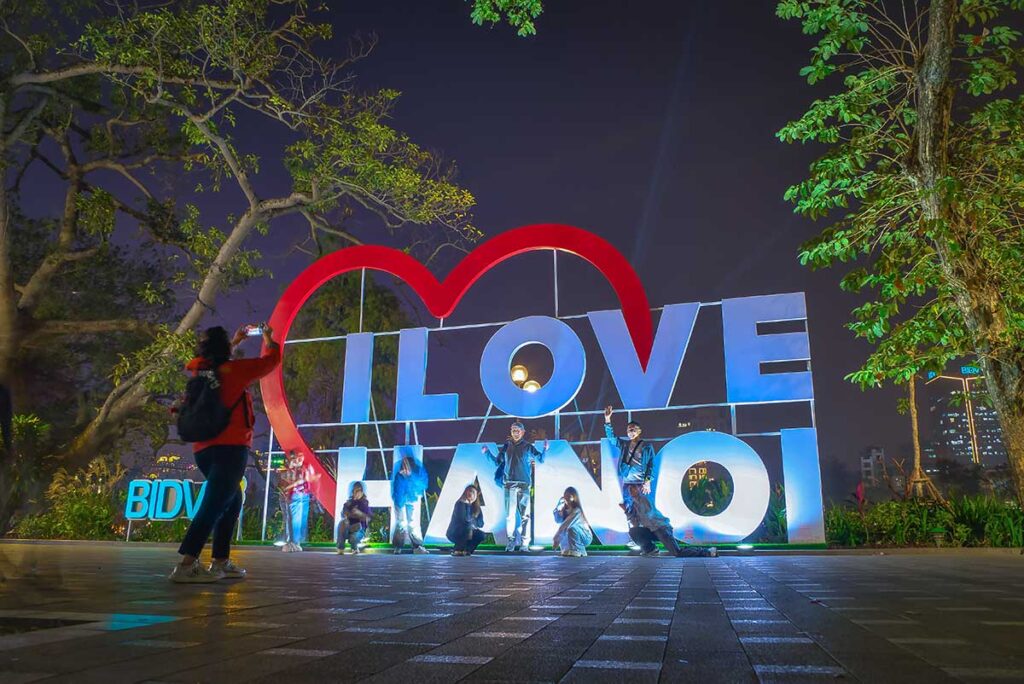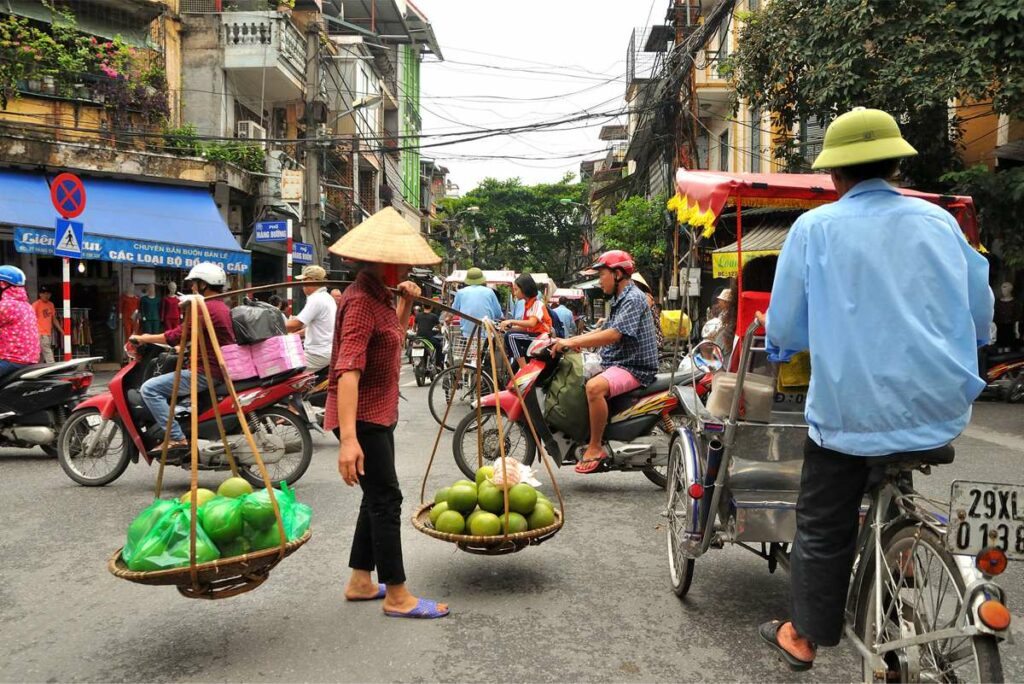Hanoi – Capital of Vietnam
To fully grasp the Hanoi meaning, it’s important to understand the city’s role as Vietnam’s capital. Today, Hanoi is the political and cultural center of the country, known for its deep historical roots, national landmarks, and symbolic role in shaping Vietnamese identity.
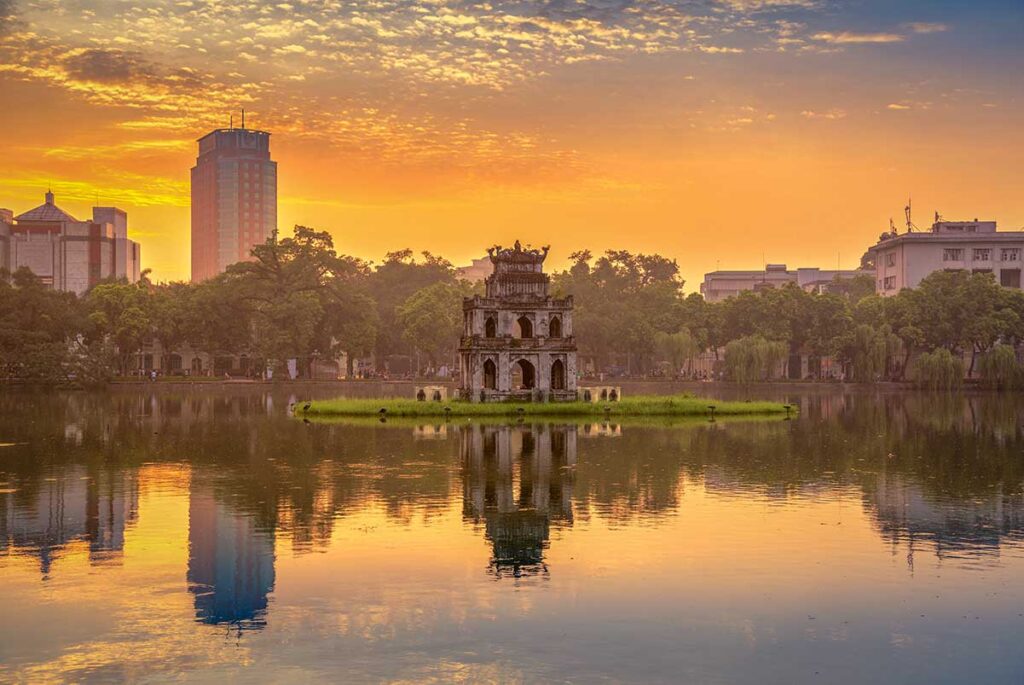
But Hanoi hasn’t always been the capital. Throughout history, Vietnam’s political centers moved between various locations — from Hoa Lu and Hue to Tay Do and Phu Xuan — depending on the ruling dynasty. Hanoi only became the permanent capital again in 1945 after independence was declared, and has remained the heart of the nation ever since. This journey is part of what gives the name “Hanoi” its layered meaning, tied to power, continuity, and national memory.
What does ‘Hanoi’ mean?
The Hanoi meaning comes directly from the Vietnamese words “Ha” (river) and “Noi” (inner or inside). Together, they describe a city “inside the river” — a clear reference to Hanoi’s geographic location between the Red River and its many branches and distributaries.
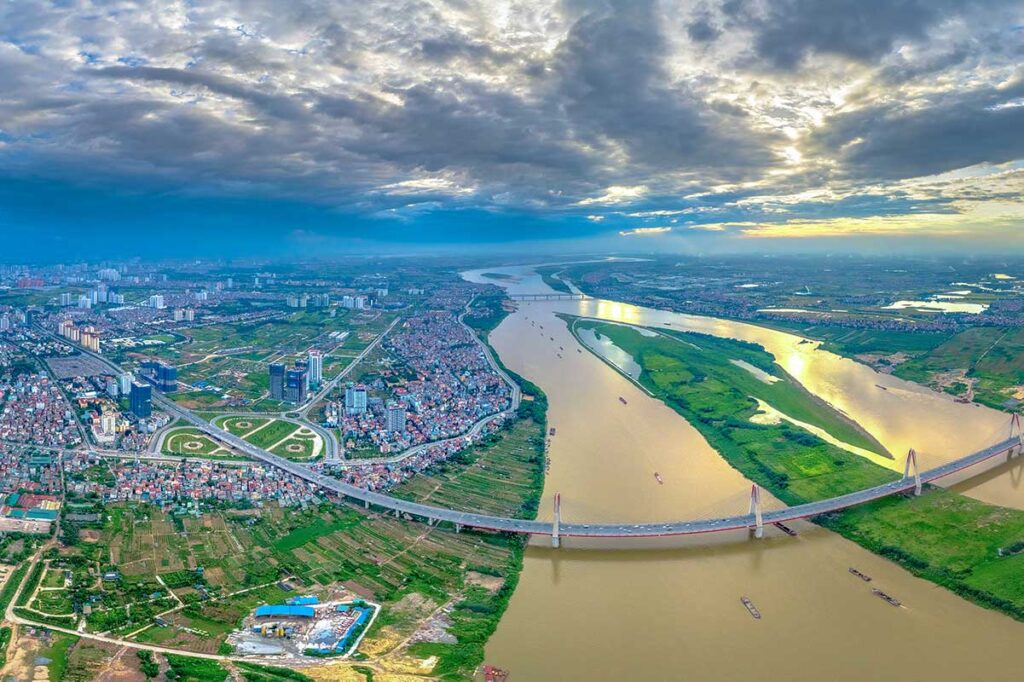
This name, officially adopted in 1831, reflects not only the city’s position on the floodplains of northern Vietnam, but also its long-standing role as a natural hub for settlement, trade, and defense. While other names throughout history have highlighted imperial power or cultural ambition, “Hanoi” is rooted in the land itself — practical, descriptive, and enduring.
The term has remained unchanged for nearly two centuries, a rare consistency in a country where cities have often been renamed with each shift in dynasty or regime. This stability gives the meaning of Hanoi a sense of permanence, tied to geography rather than politics. In that way, the name continues to reflect both the city’s literal landscape and its symbolic position at the heart of the nation.
Is there a hidden meaning in the name?
The literal Hanoi meaning — “inside the river” — describes its geography, but the name also carries a deeper, symbolic weight. Hanoi has always been a city caught between forces: between rivers, between traditions and modernity, between dynasties and revolutions, and even between opposing ideologies during the 20th century.
Even when it wasn’t the political capital, Hanoi remained the cultural and intellectual heart of Vietnam. It has produced generations of poets, scholars, revolutionaries, and artists. Its lakes, pagodas, colonial villas, and chaotic markets are all part of a city that holds memory in every street.
That’s why the meaning of Hanoi isn’t fixed. For each generation, it changes — from imperial capital to revolutionary stronghold, from socialist center to modern metropolis. The name continues to reflect more than a place on the map; it reflects how Vietnam sees itself, and how it wants to be seen.
Why you sometimes see Ha Noi
In Vietnamese, Hanoi is written as Hà Nội, with tonal marks that change pronunciation and meaning. “Hà” (river) has a falling tone, and “Nội” (inner) has a rising tone. These tones are essential in Vietnamese, where similar-looking words can mean entirely different things depending on pitch.
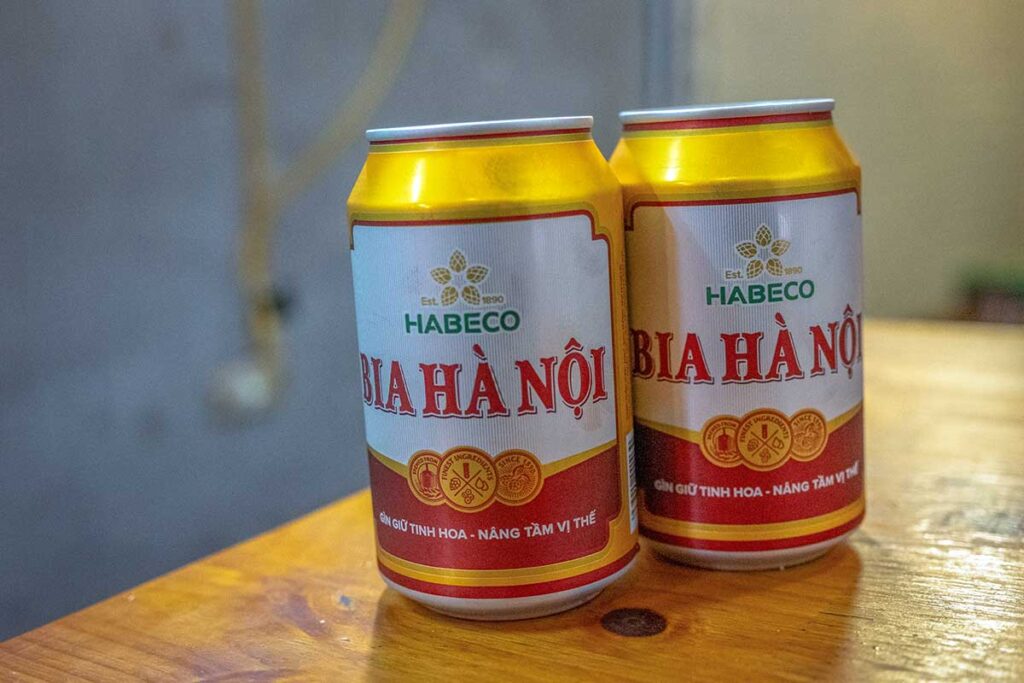
In English and most international writing, the name is simplified to Hanoi — without accents — to match standard Latin alphabet use and improve readability for global audiences. You might also see it written as Ha Noi (with a space) in older documents or translations, but Hanoi is the most widely accepted and recognized form today.
Names of Hanoi through history
The Hanoi meaning has evolved over centuries, shaped by dynasties, invasions, and shifting political centers. Before it was ever called Hanoi, the city went by many other names — each one reflecting the values, rulers, and symbolism of its time.
Dai La – The Earliest Name
The earliest known name was Dai La, used during Chinese domination and early Vietnamese rule. It means “great enclosure” or “citadel,” highlighting the city’s fortified position on the Red River plain.
Thang Long – The Ascending Dragon
In 1010, Emperor Ly Thai To moved the capital to Dai La and renamed it Thang Long, meaning “Ascending Dragon.” The name was inspired by a vision of a golden dragon rising from the river — a powerful omen of prosperity and legitimacy.
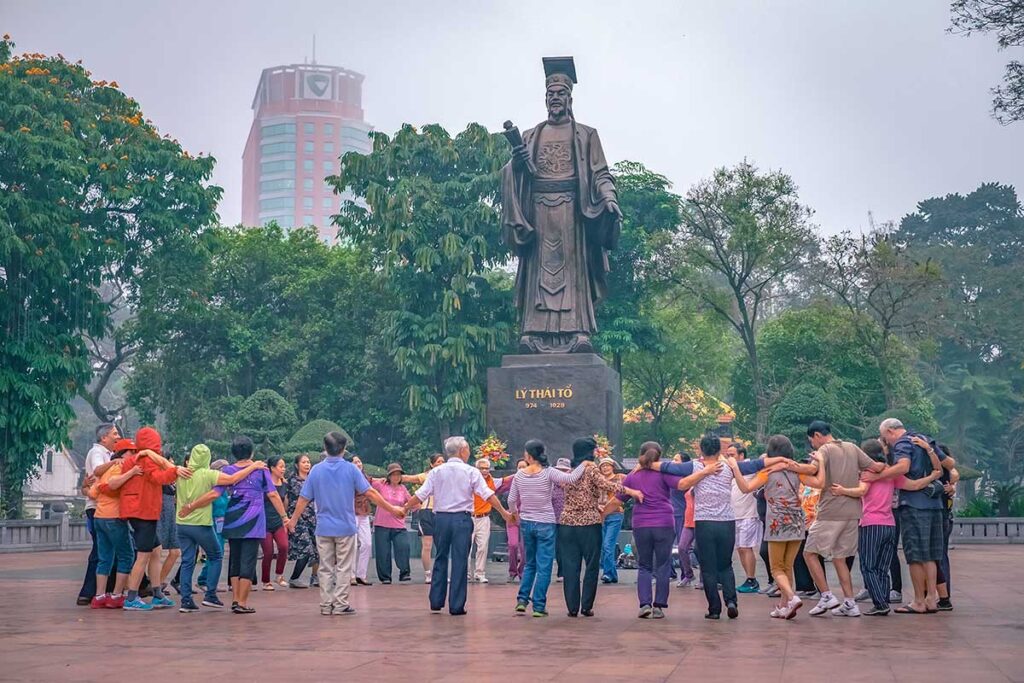
Dong Do, Dong Quan, and Dong Kinh
As dynasties rose and fell, the name changed. Under the Ho Dynasty, it became Dong Do (“Eastern Capital”), then Dong Quan (“Eastern Gateway”) during the Ming occupation. The Le Dynasty renamed it Dong Kinh, meaning “Eastern Metropolis” — a name that Europeans later adapted into “Tonkin.”
Bac Thanh and the Return to Thang Long
During the early Nguyen Dynasty, the city was called Bac Thanh (“Northern Citadel”). In 1805, it reverted to Thang Long, but Emperor Gia Long replaced the character for “Long” — changing its meaning from “Dragon” to “Prosperity,” while keeping the pronunciation.
Hanoi – Inside the River
The name Hanoi was officially adopted in 1831 by Emperor Minh Mang. It means “Inside the River,” referring to the city’s position between the Red River and its branches — a geographic description that became the city’s most lasting name.
Poetic and Alternative Names
Beyond official titles, Hanoi has also appeared in literature and folklore as Long Bien, Ha Thanh, Long Thanh, and Hoang Dieu, among others. Each reflects a different moment in its long story — from imperial ambition to colonial resistance — showing how the meaning of Hanoi has always been tied to power, place, and memory.
What Hanoi represents today – The broader meaning
Beyond its etymology, the Hanoi meaning continues to evolve through the city’s lived experience — shaped by history, people, food, and daily rhythm. For many Vietnamese, Hanoi represents tradition, memory, and identity. For travelers, it’s a place where the past and present coexist in a uniquely Vietnamese way.
1. The history
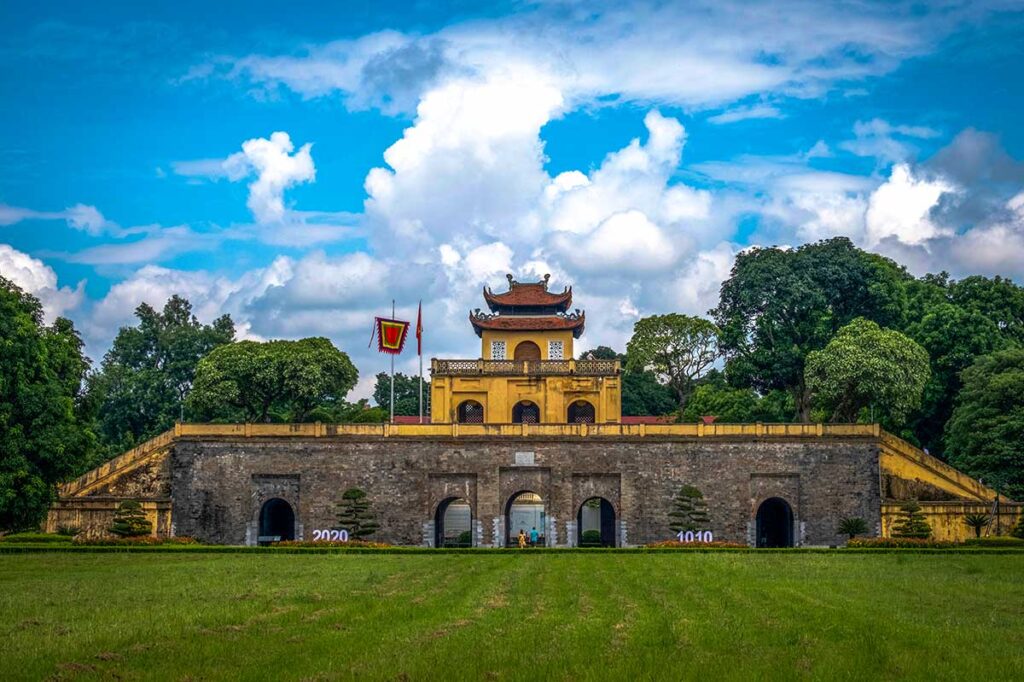
Hanoi’s meaning is inseparable from its layered history. As the former seat of dynasties, the colonial capital of French Indochina, and the wartime headquarters of North Vietnam, the city has seen more than most. Each era left behind visible traces — from the Confucian pillars of the Temple of Literature to the steel skeleton of Long Bien Bridge, the haunting cells of Hoa Lo Prison, and the symbolic height of the Flag Tower. These aren’t just attractions — they’re part of how the city remembers and redefines itself.
2. The people
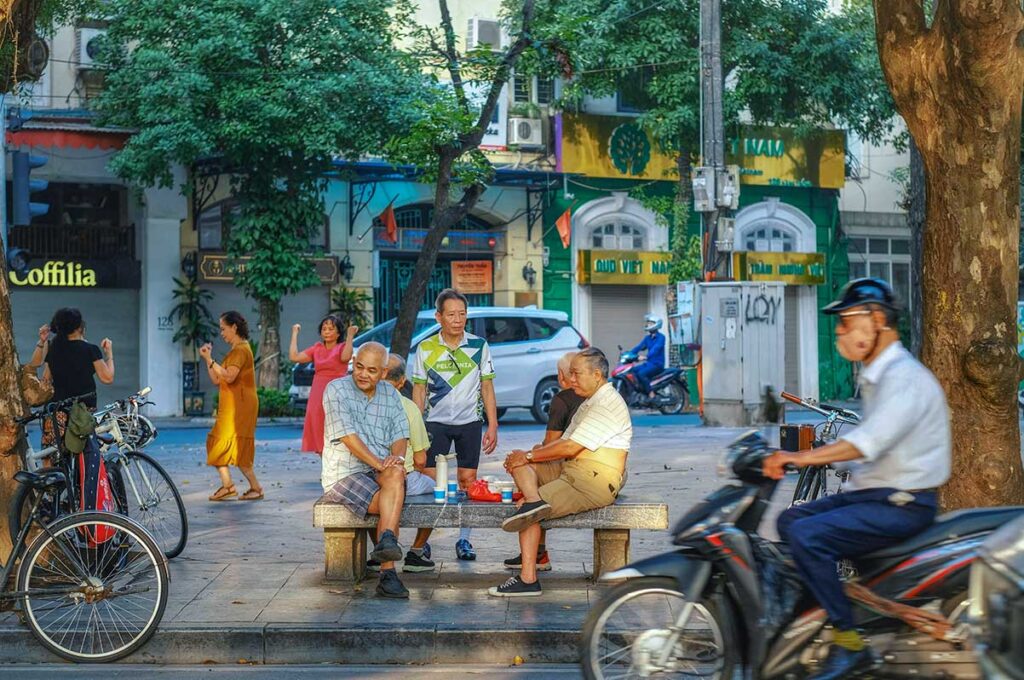
To many, the Hanoian identity is rooted in tradition: polite, formal, and proud of the city’s cultural depth. But today’s Hanoi is more complex. Generational shifts, migration, and modernization have created a mix of old-world formality and youthful energy. From elders practicing tai chi around Hoan Kiem Lake to university students launching tech start-ups, the people of Hanoi are both guardians of heritage and agents of change. This blend is part of the modern Hanoi meaning — a city where cultural resilience quietly adapts to a fast-changing world.
3. The Food
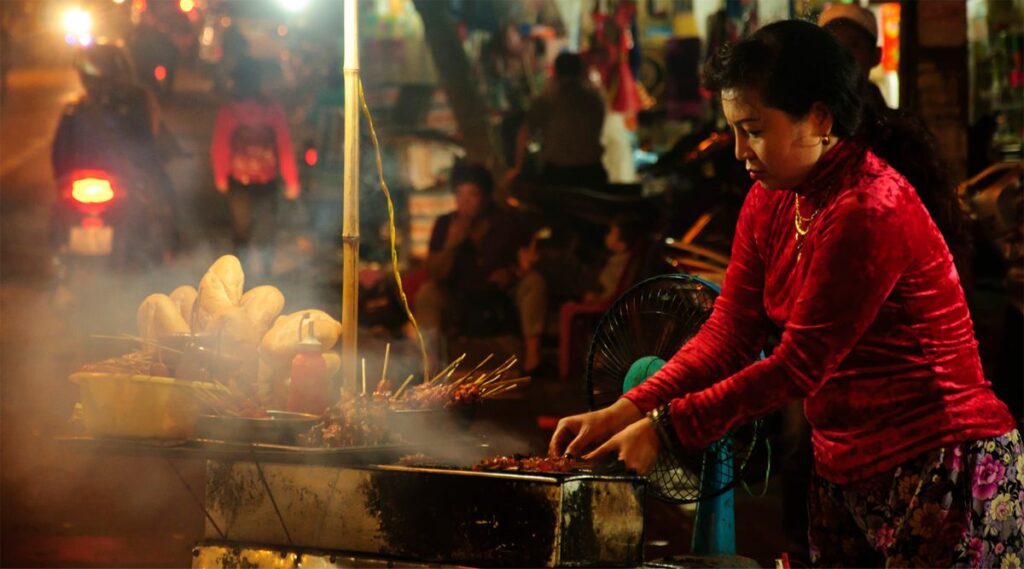
Hanoi’s culinary culture plays a major role in how locals and visitors understand the city. Signature dishes like pho and bun cha originated here, along with the famous egg coffee — all rooted in simplicity, balance, and local ingredients. Compared to the sweetness of southern cuisine or the spice of central dishes, Hanoi’s flavors are more subtle and restrained, mirroring the city’s character. Street food culture thrives in narrow alleys and open sidewalks, serving both nostalgia and discovery with every bite.
4. The city atmosphere
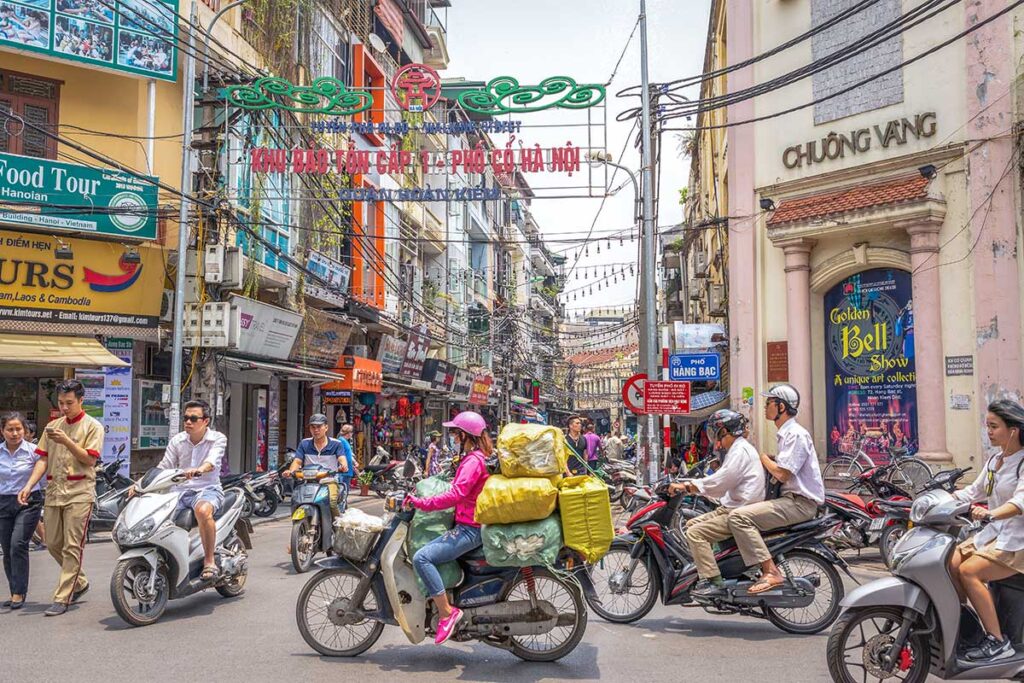
What gives Hanoi its lasting impression is the tension — and harmony — between chaos and calm. Motorbikes stream through traffic circles while, just a block away, a quiet temple or lakeside bench offers stillness. The city’s architecture reflects this mix: French villas, tube houses, pagodas, and Soviet-era blocks sit side by side. Hanoi is also a city of thinkers — home to poets, painters, and writers whose legacy still shapes the mood of its cafés and bookshops. For many, this atmosphere is the essence of the Hanoi meaning today: a place where tradition and transformation walk the same streets.
